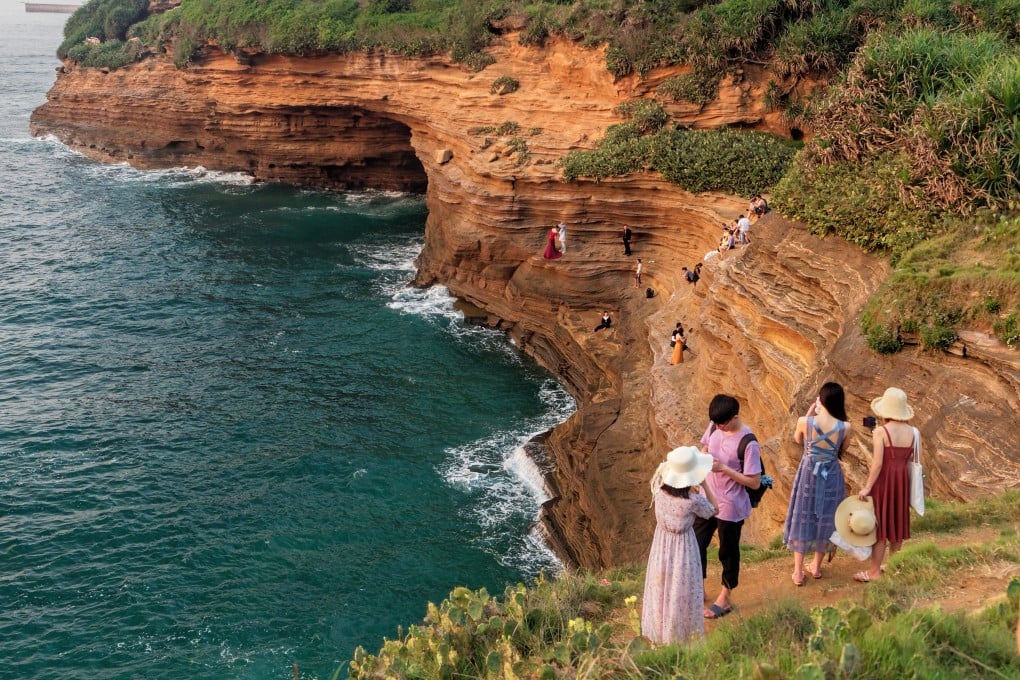‘China’s best beach’, and a volcanic island that rocks: Weizhou and Beihai – what to do and see
- Silver Beach is just one of the attractions in Beihai, a former treaty port in southern China that offers a glimpse of 19th century life for Europeans there
- Weizhou Island is China’s youngest extinct volcano, and its raw geology is a draw, as well as its beaches and seafood

Our tuk-tuk stops by a modern, low-rise hotel, and the driver motions for us – my wife, son and I – to walk to the patio. “There’s a good view,” he says. It’s an easy stroll to a vantage point atop a steep slope that drops to a coastal village and the southern bay of Weizhou Island, perhaps 60 metres below.
Though I've heard that Weizhou Island is volcanic, it’s only as I see that the inlet is almost circular, with a distinct rim, that I realise this is no ordinary bay, but rather the sea-filled main crater of the Weizhou volcano, the calm waters belying its fiery origins.
Beside the village below, a beach is backed by a wooded slope, beyond which lies the headland.
While the entire island is designated as a geopark, a visit to this southwestern tip is a must, as here the crater rim still looks raw and recently formed where it drops to clear waters, with the expanse of the South China Sea beyond. It's called Crocodile Hill, and falls within the boundaries of a park. There is an entrance at the top of the ridge, from where a flight of steps leads down to the shore.
The path traverses a sparse woodland of spindly trees before reaching a landscape akin to that of active volcanoes I've climbed in Indonesia. A cliff of dark grey rock comprising layers of ash looks freshly formed rather than weather-worn like the volcanic areas of Hong Kong.
There are tour groups following the route, and a guide tells them the last eruption was 7,100 years ago. That is a blink of an eye in geological time – compare it to the 140 million years since Hong Kong's volcanoes became extinct.